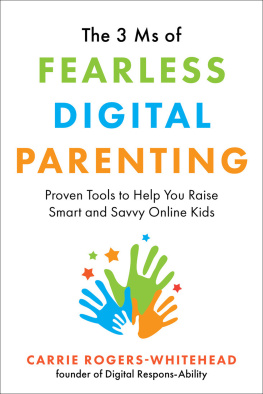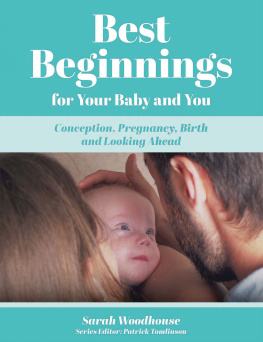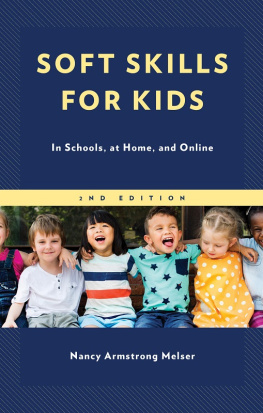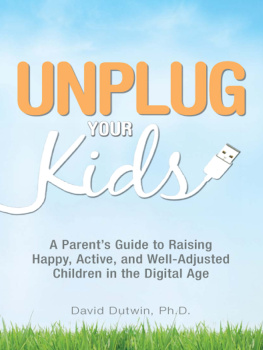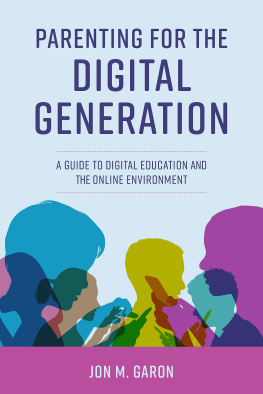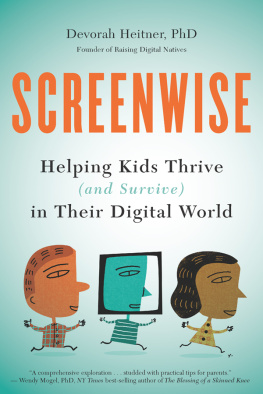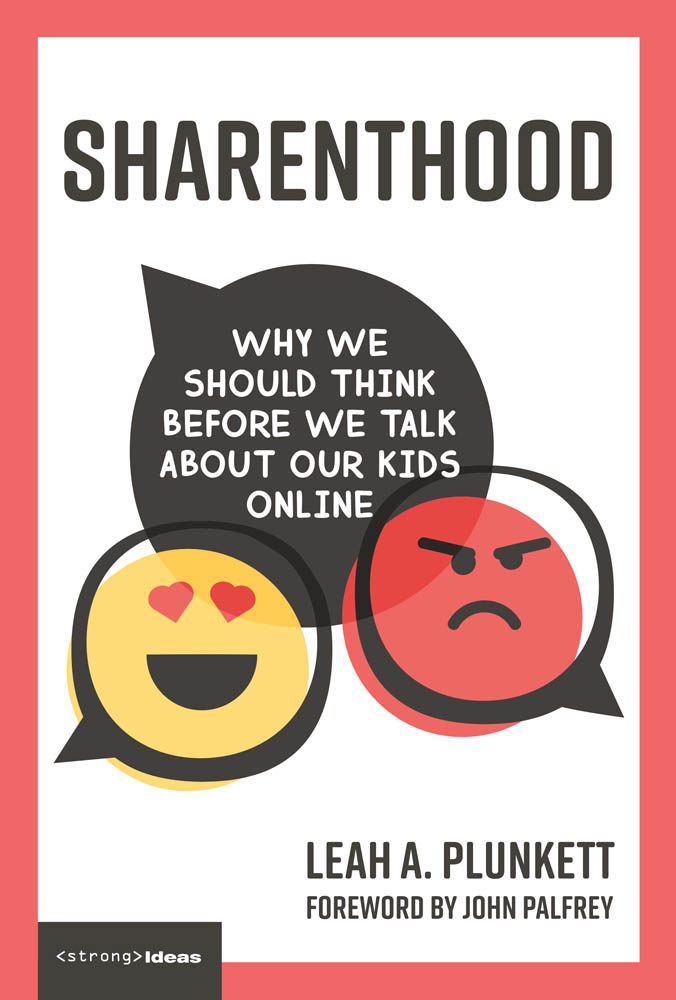
Sharenthood
Ideas Series
Edited by David Weinberger
The Ideas Series explores the latest ideas about how technology is affecting culture, business, science, and everyday life. Written for general readers by leading technology thinkers and makers, books in this series advance provocative hypotheses about the meaning of new technologies for contemporary society.
The Ideas Series is published with the generous support of the MIT Libraries.
Hacking Life: Systematized Living and Its Discontents, Joseph M. Reagle, Jr.
The Smart Enough City: Putting Technology in Its Place to Reclaim Our Urban Future, Ben Green
Sharenthood: Why We Should Think before We Talk about Our Kids Online, Leah A. Plunkett
Sharenthood
Why We Should Think before We Talk about Our Kids Online
Leah A. Plunkett
Foreword by John Palfrey
The MIT Press
Cambridge, Massachusetts
London, England
2019 Massachusetts Institute of Technology
All rights reserved. No part of this book may be reproduced in any form by any electronic or mechanical means (including photocopying, recording, or information storage and retrieval) without permission in writing from the publisher.
Library of Congress Cataloging-in-Publication Data
Names: Plunkett, Leah, author.
Title: Sharenthood: Why We Should Think before We Talk about Our Kids Online / Leah A. Plunkett ; foreword by John Palfrey.
Description: Cambridge, MA : MIT Press, [2019] | Series: Strong ideas | Includes bibliographical references and index.
Identifiers: LCCN 2018053938 | ISBN 9780262042697 (hardcover : alk. paper)
Subjects: LCSH: Internet and children. | Parenting. | Caregivers. | Social media.
Classification: LCC HQ784.I58 P58 2019 | DDC 306.874--dc23 LC record available at https://lccn.loc.gov/2018053938
10 9 8 7 6 5 4 3 2 1
d_r0
For my parents, Jamie and Marcy Plunkett, for always encouraging me to play and playing with me.
For my mentor, Jonathan Zittrain, for first encouraging me to write a book.
For my husband, Mike Lewis, for encouraging me to go to my office and write my book.
For my children, Sam and Alana, and Kermit the Dog, for encouraging me to come home and play with them.
Contents
John Palfrey
This book is about some of the crucial questions facing our children in a digital age. Most books on this topic build from research related to young peoples changing behavior, sometimes wonderful and oftentimes baffling. We need to understand these changes in youth behavior if we are going be good parents, educators, and lawmakers for an increasingly interconnected, global, and digital world.
This book is different. Leah Plunketta law professor and parentimplores us to focus our attention in the first instance on our own behavior as adults. She calls on us to think in new ways about how our daily practices affect the privacy interests of our children, today and long into the future. Her prose is clever and evocative. Youre in for a lively and thought-provoking read.
We have reason to worry about the changes to childhood and adolescence that are happening in this ever-more technologically mediated age. Young people in many societies are exhibiting higher levels of stress, anxiety, depression, and suicide. Researchers around the world are trying to figure out whether there is a causal relationship between higher rates of social media usage and these growing problems for youth.
Although these are worthy problems to puzzle over, Plunkett calls our attention to an adjacent set of concerns that are sure to impact young people long into the future. Were missing the mark, she argues, when we try to control too much about the lives of the young people in our care. We are too often snowplow parents who try to smooth the path for our children before they encounter the obstacles. We dont give them the chance to fail, skin their knees, and learn to brush themselves off. As parents and teachers, we worry so much about protecting them that we dont adequately support them in their development of the coping skills they will need for living in a complex world. We think we are helping, but too often we compound the problems they will face. And we are potentially causing problems related to data privacy that we cant envision today.
This topic is an urgent one for wealthy societies for a couple of reasons. For one thing, theres no escaping the digital world for most young people. They will grow up in a world in which their every movement is recordedstarting with the sonogram of kicking their mothers inside the womb and continuing through the excitement of birth, first steps, first day of kindergarten, countless sporting events, parties, and graduations. The digital dossier of their entire life establishes a data set that marketers, governments, and potential dates will mine from now until it no longer matters.
For another thing, adolescence itself is getting longer. It is growing in both directions. Young people, especially girls, reach adolescence at a younger age. And adolescence is now believed to stretch well into the twenties for most young people. The consequences of this extended period are meaningful for many young people. It also means that our influence as parents, teachers, coaches, and mentors extends longer than ever before. Our own actions cast a longer and longer shadow as time passes.
In situating our attention where it should first belongon what we can directly controlPlunkett is careful not to let the rest of society off the hook. A law professor, she appreciates the enduring importance of institutional constraints and enablers. The law is one of these mechanisms. Corporate practice is another. Adults are sharenting because the structure of the online world makes it very easy to do and even encourages it.
As Plunkett points out, most of this bad parenting is encouraged by every major technology company and is entirely lawful today. When we give away data about the young people in our care, it is perfectly fine to do so from the perspective of the state. In fact, the current legal regime further endorses these practices in permitting the kinds of business practices that yield huge profits for data-hungry social media services and marketing companies. The default setting today prompts parents to share, rather than protect, data about their children. A very profitable business model depends on this practice.
There is much to be gained from a different type of focus on this problem of data about young people. The generation that is coming of age today can benefit from many good things as a result of new technological developments. They can mean rewarding avenues for learning, exciting new types of jobs (ironically perhaps, most especially in data science), promising ways to solve global problems, and avenues for deepening civic engagement. At the moment, young people are getting too few of these benefits while bearing too many of the costs of the new digital environment.
Plunkett offers a way forward for better parenting in an increasingly data-rich world. As companies and governments trip over themselves to invest more and more in the development of machine learning and other forms of artificial intelligence, the need for data on which to run these systems will grow sharply as this generation comes of age. We owe todays young people a better structure in which to grow up in a digital era. And along the way, we should clean up our own habits and practices as parents and guardians before it proves too costly to those we care the most about.
Next page

